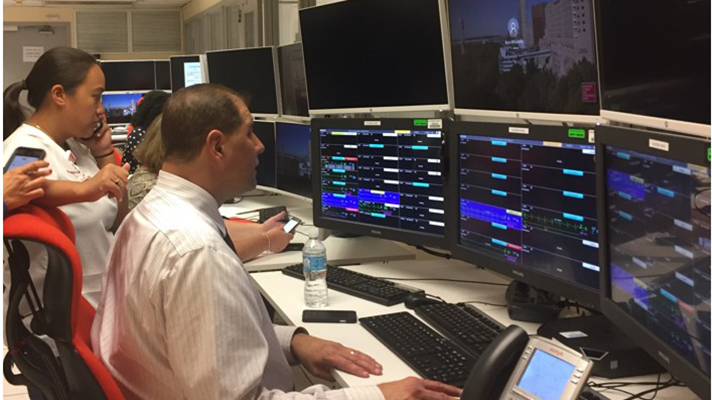AI System Reduces Alarm Fatigue
AI is driving the Clinical Operations Center (CLOC) at NewYork Presbyterian/Weill Cornell Hospital and it is being driven by AI. Located in an off-site command center in the Weill-Cornell Medical Center, two miles away from the hospital, the space houses remote administrative stations. They include clinical monitoring setups with computers and six screens from which nurses track real-time physiological data of patients in the emergency department. RNs also check activity through smart-bed technology, which keeps tabs on temperatures of refrigerators that hold life-saving medicine, and facilitate call center functions.
“We’ve had to innovate and completely reshape traditional methods of healthcare,” said Leo Bodden, NewYork Presbyterian Hospital’s chief technology officer, who oversees CLOC.
Anyone who has spent time in a hospital knows how loud and annoying the patient vitals monitors are. Caregivers are constantly being called to the rooms to check or reset monitors. This leaves less time for actual medical care. With the ability to monitor these alarms, which average 30,000 per week, the AI programs can separate real medical issues from low priority calls.
“After going live with CLOC, the number of notifications made to emergency department registered nurses via text or call has gone down to around 100 on average. The team on the floor can de-prioritize the 30,000 ‘nuisance’ alarms that are not categorized as a priority.”
Not only has the hospital embraced AI in its operations, but its managers believe AI will become a vital part of the medical industry.

“When it comes to AI, we anticipate it being a real game-changer across a variety of industries, not just within healthcare,” Bodden explained. “Ultimately, if AI can identify ways to streamline tasks that would otherwise take valuable time away from medical professionals, then doctors and nurses would be free and able to direct more of their attention toward providing amazing care to patients.”
[Also: How AI is transforming healthcare and solving problems in 2017]
[Also: CIOs must manage data for AI to deliver on data-driven healthcare]








Leave A Comment